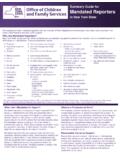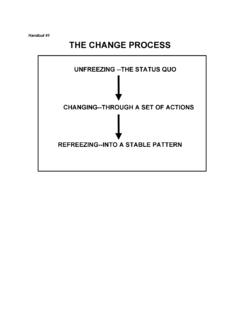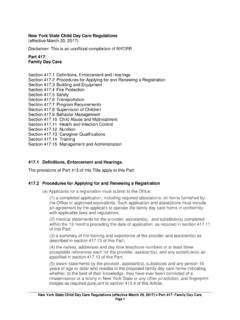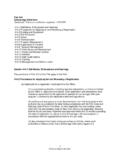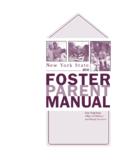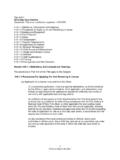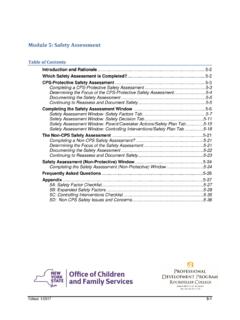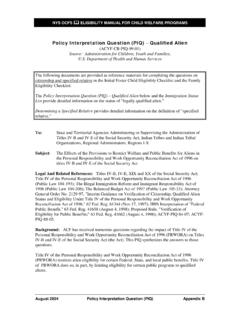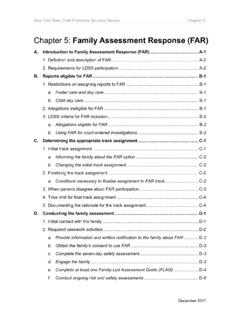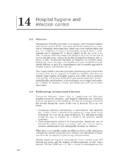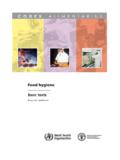Transcription of ARTICLE 81 OF THE NEW YORK STATE MENTAL …
1 GUIDE TO ADULT GUARDIANSHIP ARTICLE 81 OF THE NEW YORK STATE MENTAL hygiene LAW Appointment of a Guardian for Personal Needs and/or Property management Prepared for The New York STATE Office of Children and Family Services by The Brookdale Center for Healthy Aging & Longevity of Hunter College Sadin Institute on Law, Public Policy & Aging and The New York STATE Law Revision Commission Copyright 2005 Brookdale Center for Healthy Aging & Longevity of Hunter College and The New York STATE Law Revision Commission 2 This Manual was written by: Debra Sacks Senior Staff Attorney Director Reingold Elder Abuse Project Sadin Institute on Law, Public Policy & Aging The Brookdale Center for Healthy Aging & Longevity of Hunter College and Rose Mary Bailly Executive Director New York STATE Law Revision commission Copyright 2005 Brookdale Center for Healthy Aging & Longevity of Hunter College 425 East 25th Street, 13th Floor North New York, NY 10010 Tel: (212) 481-3780 / Fax: (212) 481-3791 3 TABLE OF CONTENTS Legal Standard.
2 7 Where to File the Petition ..11 Who may Bring a Guardianship Proceeding ..11 Service and Notice ..13 Timing .. 16 Petition ..16 Court Evaluator ..25 Counsel ..28 Short Term Solutions ..30 Alternatives to Guardianship ..36 Special Guardian ..36 Appointment of a Guardian ..38 Duties of a Guardian ..40 Powers of the Necessary Documentation ..48 Change in 4 INTRODUCTION ARTICLE 81 of the MENTAL hygiene Law, Appointment of a Guardian for Personal Needs and/or Property management , became law in New York STATE in 1992 and went into effect April 1, 1993. The statute repealed Articles 77 and 78 of the MENTAL hygiene Law and replaced them with one guardianship statute. ARTICLE 81 authorizes a proceeding based on the concept of the least restrictive alternative - one that authorizes the appointment of a guardian whose authority is appropriate to satisfy the needs of an incapacitated person, either personal or financial, while at the same time tailored and limited to only those activities for which a person needs assistance.
3 The standard for appointment under this procedure focuses on the decisional capacity and functional limitations of the person for whom the appointment is sought rather than on some underlying MENTAL or physical condition of the person. ARTICLE 81 also fills the gap in New York law for persons who require assistance but not the drastic remedy of a guardian. ARTICLE 81 requires the court to consider alternatives to the appointment of a guardian, such as visiting nurses, homemakers, home health aides, adult day care, trusts, and representative and protective payees and allows the court to fashion remedies which include protective arrangements and single transactions which would achieve security, service or care to meet the foreseeable needs of the incapacitated person without the appointment of a guardian.
4 The law advocates the protection of the rights of the allegedly incapacitated person by striking a balance between the benign paternalistic approach traditional to guardianship proceedings and an adversarial one affording due process to the subject of the proceeding. The law also established education requirements to increase the awareness of the Bar, the persons appointed as guardians, and other participants in guardianship proceedings of the complexity of guardianship issues. Hopefully this manual will guide the reader through the process of guardianship appointment. While the examples are used to emphasize some of the major provisions, it should be noted that every situation is unique and may require very different solutions. The beauty of ARTICLE 81 is that it is flexible enough to address the needs of each individual.
5 This manual should not be read in a vacuum however. When legal intervention is being discussed, the reader should consider all legal options that are available such as power of attorney, trusts, joint bank accounts representative payee, civil commitment and orders of protection. Guardianship is to be used as a last resort. Remember, the appropriate intervention must be the least restrictive alternative yet adequate to meet your client's needs. 5 DEFINITIONS The definitions highlight the underlying goals of the statute. Section (a) "guardian". The statute specifically names a person who is eighteen years or older, a corporation, or a public agency, including a local department of social services as a potential guardian. As was previously the practice, the commissioner of the Department of Social Services under its Adult Protective Services Program may be appointed as guardian in accord with ARTICLE 81 and the Social Services Law and Regulations.
6 A community guardian program may be appointed as guardian when the proceeding was commenced by a Social Services Official with whom such program was contracted. (b) "functional level". This definition is a neutral term which encourages those participating in the guardianship proceeding to consider the abilities of the person and not just to focus on the person's limitations. (c) "functional limitations". This definition emphasizes the behavior of the allegedly incapacitated person which impairs the ability to provide for personal needs or financial or property management . The statute stresses functional level and limitations rather than disease or underlying medical condition. (d) "least restrictive form of intervention". This definition emphasizes the goal of the statute which is that the guardian should have only those powers necessary to assist the incapacitated person to compensate for limitations and to allow the person the greatest amount of independence and self-determination in light of the person's ability to appreciate and understand his or her functional limitation.
7 In appointing a guardian the court should be guided by the concept of least restrictive form of intervention. That goal is reflected particularly in the provisions governing the power of the court to appoint a guardian (Section 81. 02) and the provision governing dispositional alternatives (Section ). (e) "available alternative resources". This definition promotes the goal of the statute of requiring a disposition which represents the least restrictive form of intervention. It is incumbent upon the petitioner, the court evaluator, and the court to consider voluntary alternatives to judicial intervention under this ARTICLE . The definition sets out the types of services that might operate as voluntary alternatives such as, visiting nurses, homemakers, home health aides, adult day care and multipurpose senior centers, powers of attorney, health care proxies, trusts, representative and protective payees.
8 The list is not meant to be restrictive but rather set the wheels of investigation in motion for considering what possibly could be done to assist this person without appointing a guardian. 6 (f) "personal needs". This definition describes the type of needs that are characterized as personal, such as food, clothing, shelter, health care, and safety. (g) "property management ". This definition describes the type of needs that relate to property and financial affairs such as taking actions to obtain, administer, protect and dispose of real and personal property, intangible property, business property, benefits, and income and to deal with financial affairs. (h) "activities of daily living". This definition describes the type of activities that the court should look at to determine the person's functional level, such as, but not limited to, mobility, eating, toileting, dressing, grooming, housekeeping, cooking, shopping, money management , banking, driving or using public transportation, and other activities related to personal needs and to property management ; (i) "major medical or dental treatment".
9 This definition describes the categories of health care treatment which the court and the guardian should regard as having a significant effect on the person. The language of this section is similar to that contained in section of the MENTAL hygiene Law regarding non-judicial surrogate decision making. (j) life sustaining treatment . This definition means medical treatment which is sustaining life functions and without which, according to reasonable medical judgment, the patient will die within a relatively short time period. Including life sustaining treatment in the definitions section distinguishes such treatment from other major medical treatment and emphasizes that major medical treatment does not include withholding or withdrawing life sustaining treatment. Thus the guardian s power to consent to major medical treatment is subject to, and limited by, the law and precedents of the Common Law governing third-party consent to withholding or withdrawing life sustaining treatment.
10 7 LEGAL STANDARD When May A Court Appoint A Guardian? Section The court may appoint a guardian for a person if the court determines (1) that the appointment is necessary to provide for the personal needs or to manage the property and financial affairs of the person, or both, and (2) that the person agrees to the appointment or that the person is incapacitated. A determination of incapacity requires clear and convincing evidence that a person is likely to suffer harm because: 1. the person is unable to provide for personal needs or unable to manage property and financial affairs; and 2. the person cannot adequately understand and appreciate the nature and consequences of such inability. The law requires the court to give primary consideration to the functional level and functional limitations of the person.
